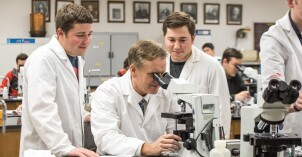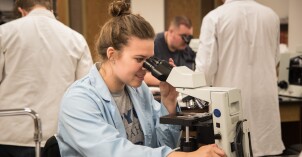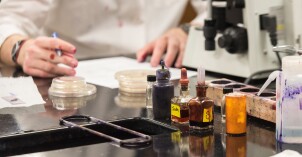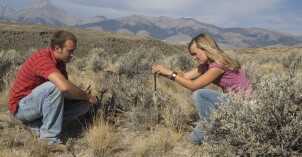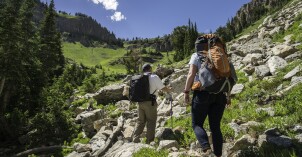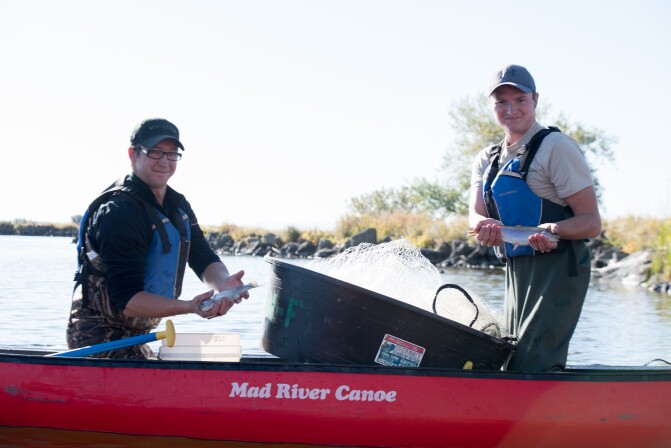
Gain Hands-On Experience
By having a strong desire to work in the outdoors, you will have the opportunity to work with fish and their habitat. This degree requires hands-on work, allowing for you to get up-close and truly help the aquatic ecosystems you’ll be working with.
In this degree, you can work to make sure that fish are healthy, in turn helping those who fish stay healthy by being sure that they are catching healthy fish. You can also work in conserving fish populations, transporting and tagging fish, and watching for crime against fish and game laws. In doing so, you are helping preserve the wildlife and protecting different species of fish.
*With coursework requirements are designed to meet State and Federal hiring prerequisites, and to prepare students for graduate studies.
In this degree, you can work to make sure that fish are healthy, in turn helping those who fish stay healthy by being sure that they are catching healthy fish. You can also work in conserving fish populations, transporting and tagging fish, and watching for crime against fish and game laws. In doing so, you are helping preserve the wildlife and protecting different species of fish.
*With coursework requirements are designed to meet State and Federal hiring prerequisites, and to prepare students for graduate studies.
Highlighted Career Paths
Graduates with a degree in Fisheries Management have a wide array of rewarding careers before them. Check out some of the top careers students get with this degree or explore more career options in I-Plan.
Conservation Officer
Work in compliance with fish and game laws to investigate crime happening in wildlife and fisheries. Collect data for studies related to wildlife and fisheries and help in studying wildlife population.
Natural Resource Manager
The main responsibility of a natural resource manager, or conservation scientist, is to help protect and conserve different parts of wildlife. In specializing in fisheries, you can help in ensuring that fish populations are stable in certain areas.
Fisheries Biologist
Conduct research and collect data on fish. Research could include studying diseases that affect the fish, how fish interact with their environment, how fish interact with the environment they are in, and so much more. Another part of this career is to be sure that fish in polluted or contaminated waters are healthy and safe for fishers to catch.
Highlighted Courses
Develop knowledge and skills in aquatic ecology, fish biology, and resource management through courses in ecology, conservation, and environmental science to prepare for careers or graduate studies in fisheries biology, natural resource management, or related environmental fields.

